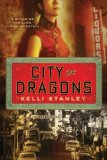Summary | Excerpt | Reviews | Read-Alikes | Genres & Themes | Author Bio

Kinsey's fifteenth excursion into the dark side of human nature.
The call comes on a Monday morning from a guy who scavenges
defaulted storage units at auction. The weekend before, he'd bought a stack of
cardboard boxes. In one, there was a collection of childhood memorabilia with
Kinsey's name all over it. For thirty bucks, he was offering Kinsey the lot.
Though she's never been one for personal possessions, curiosity is a
powerful force. She agrees to meet the guy, then hands over a twenty (she may be
curious, but she's also cheap and she loves a bargain).
What she finds among the items is an old undelivered letter to her that will
force her to reexamine her beliefs about the breakup of her first marriage ...
about the honor of her first husband ... and about an old unsolved murder.
It will put her life in the gravest peril.
"O" Is for Outlaw: Kinsey's fifteenth excursion into the dark
side of human nature.
Through fourteen books, readers have been fed short rations when it comes to
Kinsey Millhone's past: a morsel here, a dollop there. We know about the aunt
who raised her, the second husband who left her, the long-lost family up the
California coast. But husband number one has remained a blip on the screen.
Until now. "O" Is for Outlaw: a revealing excursion into Kinsey's past.
Author's Note
Just a brief note to clarify the time frame for these "alphabet" novels. For those of you confused about what appear to be errors in my calculation of ages and dates, please be aware that "A" Is for Alibi takes place in May of 1982, "B" Is for Burglar in June of 1982, "C" Is for Corpse in August of 1982, and so forth. Since the books are sequential, Ms. Millhone is caught up in a time warp and is currently living and working in the year 1986, without access to cell phones, the Internet, or other high-tech equipment used by modern-day private investigators. She relies instead on persistence, imagination, and ingenuity; the stock-in-trade of the traditional gumshoe throughout hard-boiled history. As her biographer, I generally avoid mention of topical issues and date-related events. You'll find few, if any, references to current movies, fads, fashions, or politics. This book is an exception in that events connect back to the Vietnam War, which ended in 1975, eleven years before the incidents described herein. Given narrative requirements, I populate historical actions with fictional characters and project wholly invented persons into academic institutions and political arenas, in which their "real-life" counterparts will doubtless dispute their presence. In my view, the delight of fiction is its enhancement of the facts and its embellishment of reality. Aside from that--as my father used to say--"I know it's all true because I made it up
myself "-- Sue Grafton

If you liked O Is For Outlaw, try these:

by Kelli Stanley
Published 2011
San Francisco's Chinatown, 1940: Miranda Corbie, a private investigator, stumbles upon the fatally shot body of Eddie Takahashi. The Chamber of Commerce wants it covered up. The cops acquiesce. But Miranda wants justice - whatever it costs.

by Tina Whittle
Published 2011
Tai Randolph thinks inheriting a Confederate-themed gun shop is her biggest headache - until she finds a murdered corpse in her brother's driveway.
A few books well chosen, and well made use of, will be more profitable than a great confused Alexandrian library.
Click Here to find out who said this, as well as discovering other famous literary quotes!